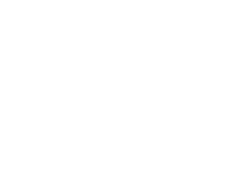One Laptop per Child targets Middle East and E Africa
- Published

Various trials of the machines are running across Africa
The group behind the "$100 laptop" has formed a partnership which it hopes will deliver computers to every primary school child in East Africa.
The partnership between One Laptop per Child (OLPC) and the East African Community (EAC) aims to deliver 30 million laptops in the region by 2015.
OLPC has also announced a partnership with a UN agency which aims to deliver 500,000 machines in the Middle East.
Both the UN agency and the EAC first need to raise cash for the laptops.
The two groups aim to find donors to help pay for the machines, which currently sell for more than $200, despite intentions to sell them for less.
"At the end of the day, it all comes down to money," Matt Keller of OLPC told BBC News, talking about the EAC partnership.
"Ideally, we would live in a world where governments can equip every kid to be educated, but that's not the case."
Tech trials
He said the EAC was currently drafting a letter to US President Barack Obama to ask if the US could provide assistance to pay for the project. The countries were also exploring links with the aid community, he said.
"This is a very ambitious project for which we will have to partner with various people and institutions to mobilise and fund the resources required to meet our objectives by 2015," said Ambassador Juma Mwapachu, secretary general of the EAC.
The organisation represents the governments of Tanzania, Rwanda, Kenya, Uganda and Burundi.
Some of the countries have already run small trials with the machines, including Rwanda which has more than 20,000 pupils using them.
Mr Keller said the country already had an order for 70,000 more and had shown the other countries in the area the benefit of technology in schools.
The partnership with the UN Relief and Works Agency (UNRWA) aims to distribute half a million laptops to Palestinian children throughout the Middle East.
UNRWA looks after more than four million Palestinian refugees in five countries
It has been conducting trials with 1,500 machines in the region and has begun to distribute a further 2,100 to a school in Rafah, in the south of the Gaza strip.
"For us it is vital to get computers to our kids," Adnan Abu Hasna of UNRWA told BBC News.
"We think many people and individuals will support the idea."
'Tipping point'
OLPC has had difficulty selling its computers and its alternative vision of education around the world.
The organisation - a spin out from US university MIT - originally aimed to sell the low-cost laptops in lots of one million to governments in developing countries for $100 each.
However, it had difficulty getting governments to commit to bulk orders.
The rugged machines - which are designed specifically for children in the developing world and run both Linux and Microsoft Windows - are now offered in single units for around $200 each.
Mr Keller said that there were currently around 1.6 million machines distributed around the world, with commitments for another 400,000.
He admitted the project had still not reached its "tipping point", but said if the EAC was successful it may prove to be the decisive moment for the project.
"We want [these computers] to be as a fundamental as electricity," he said.